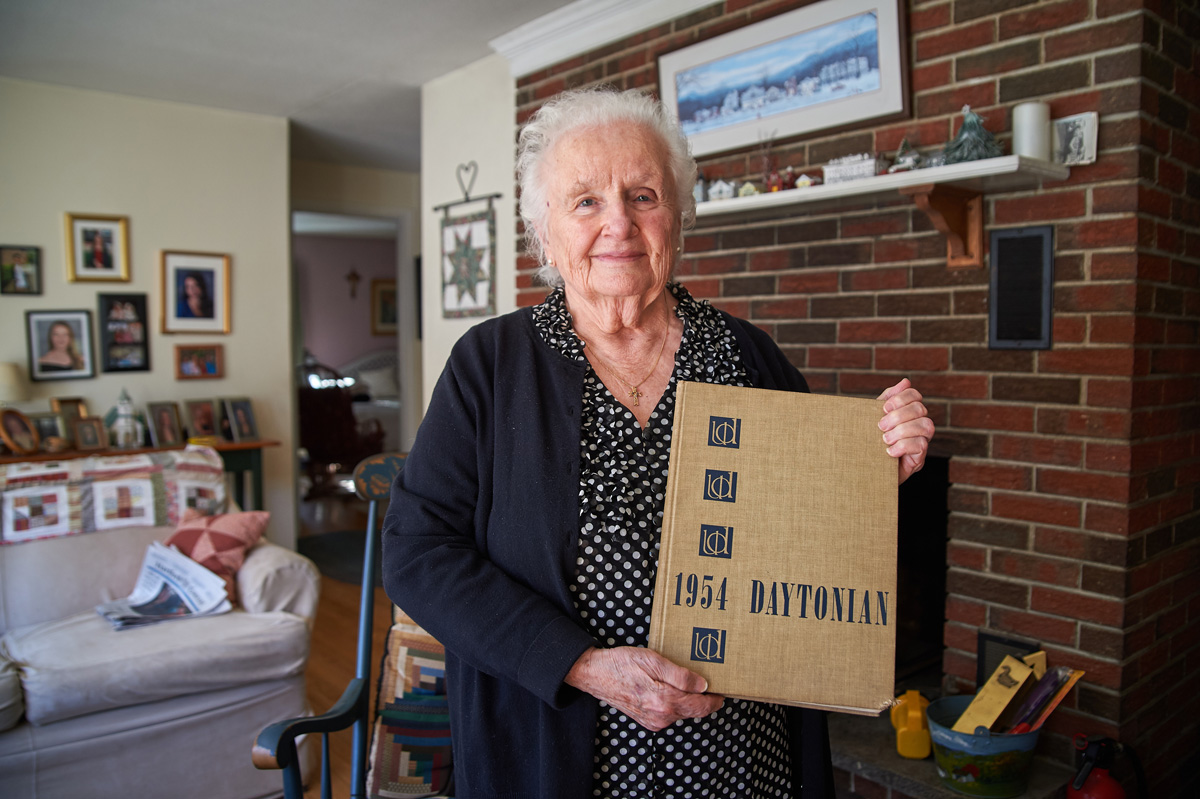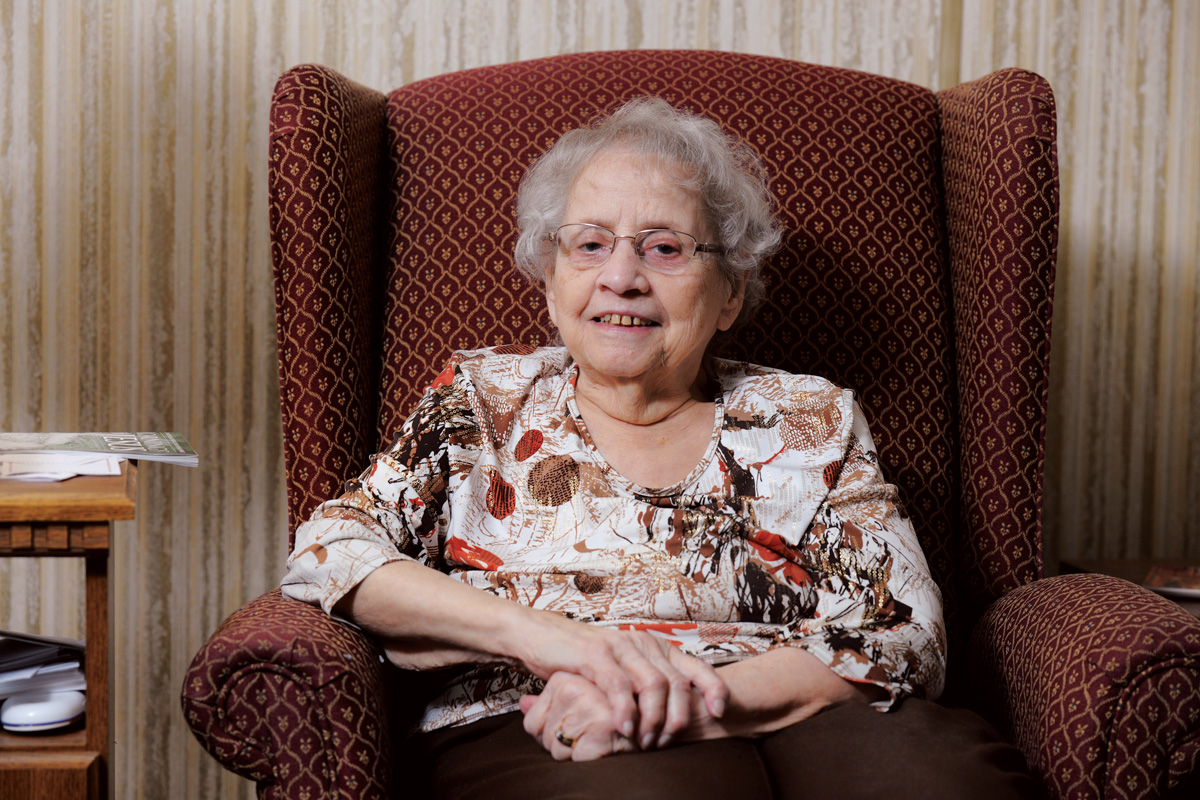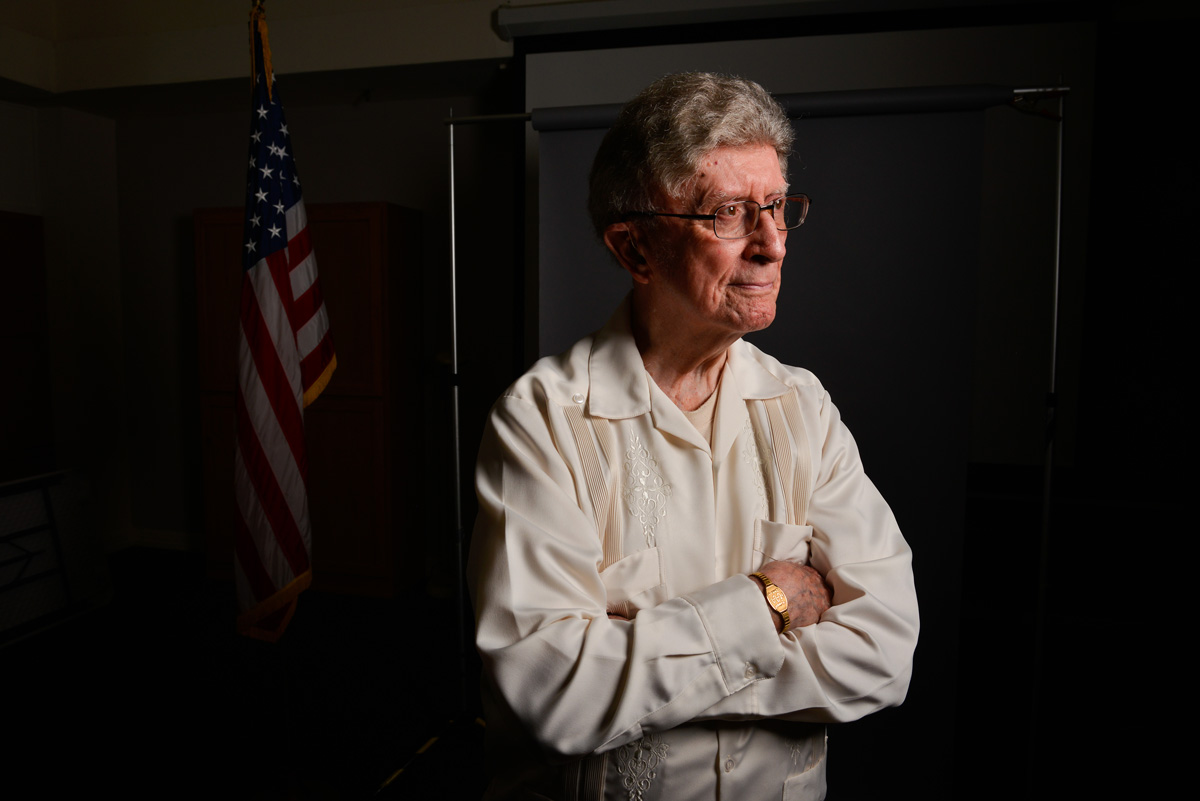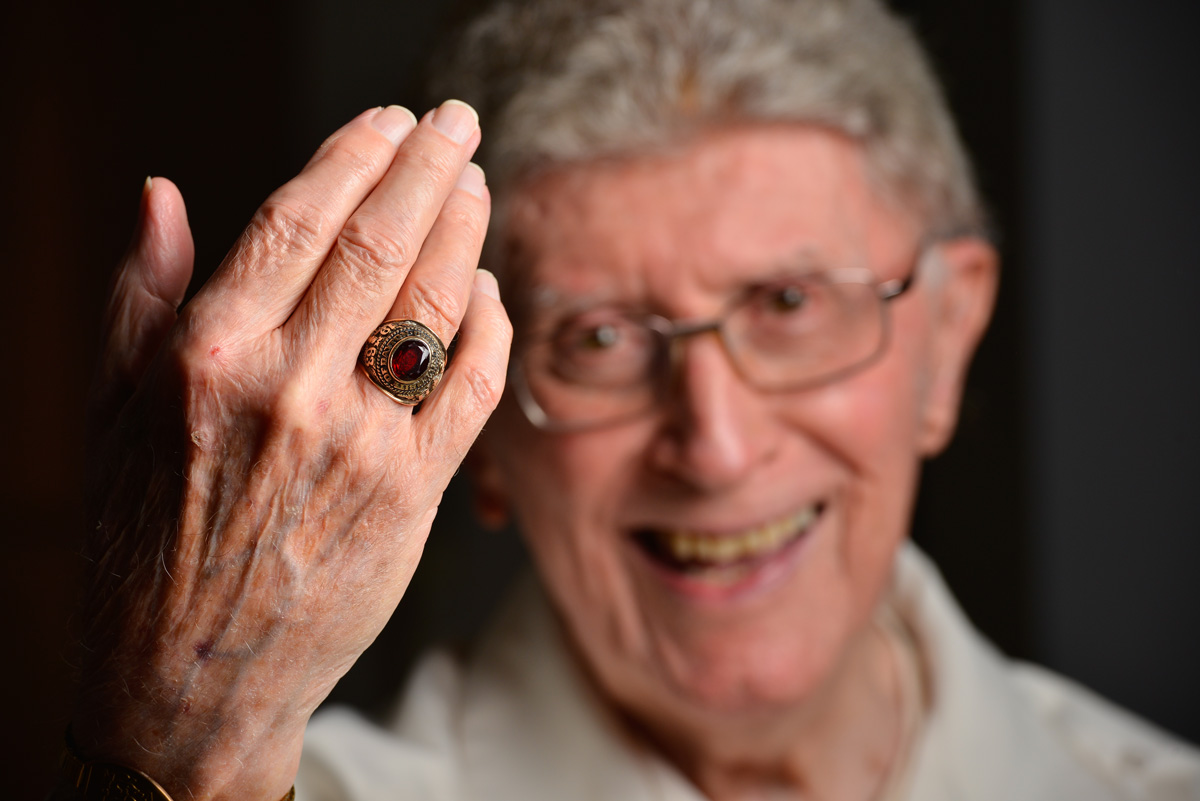In their words: UD's nursing major, 1939-69
Elsie Muska Stolle ’54, Ashford, Connecticut
I enjoyed nursing very much. I like working with people and felt that I was doing some good by being in nursing.
It was also convenient because when you start having a family you can work different hours. I worked a lot of evenings because I had four children. I think I took like four years off for a period when they were all small, then I went back.
Believe it or not, my three daughters are also nurses. Nursing is so different now from when I was a nurse. I listen to my daughters and I don’t think I could go into a nursing program and I couldn’t work in a hospital anymore. For one thing, I don’t have a computer. You have to be savvy in computers.
I think my only advice to students would be to go into nursing for the good reason of helping others, not for the money.
Mary Eck ’62, Cincinnati
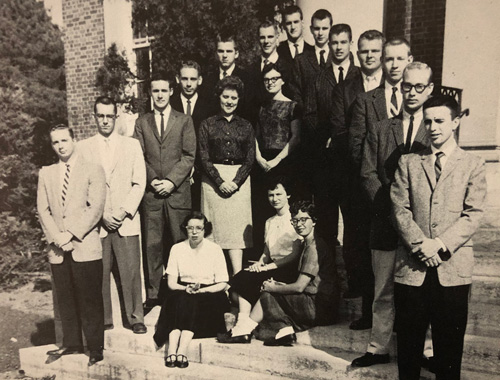
After I graduated, I saw an ad for a public health nurse at the health department in Cincinnati. I was there for 29 years.
I started out making home visits on new babies. I also ran well-baby clinics. I ran a lot of clinics — one in the morning and one in the afternoon.
I then worked with the prenatal patients. I enjoyed working with them — I liked watching them progress and after they had the baby they would always bring it in so we could look at it.
The hardest part of being a nurse was at the end. By that time we didn’t see new babies, we saw Medicare patients and they were starting with all the technology. I wasn’t real keen on that.
I would tell a new nursing student to make sure they don’t get tied up with the technology and forget about the patient. I missed the babies, when it was a much simpler life.
Capt. Richard Massa ’66, San Diego, California
The program at UD had an emphasis on nursing education and administration. When I tell my colleagues about it they always say they wished they had that opportunity.
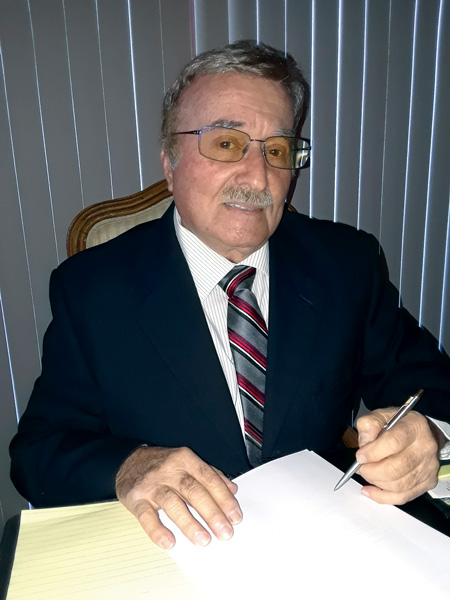 I needed to get permission to miss the graduation ceremony because I had to report for duty. I accepted a commission in the U.S. Army and that summer I went directly to El Paso, Texas, to set up a military service school.
I needed to get permission to miss the graduation ceremony because I had to report for duty. I accepted a commission in the U.S. Army and that summer I went directly to El Paso, Texas, to set up a military service school.
I was the only guy in UD’s program. Now there are some places that have just as many men as women, but not in my day. We were sort of pioneers.
I talk about it all the time, I got the best of both worlds. I couldn’t have had it any better. I think the best decision I ever made was to go to UD.
My advice to incoming students would be don’t shy away from any opportunities during clinicals. It’s my understanding that those opportunities aren’t going to present themselves like they used to.
Ullainee Berberich Battigaglia ’54, Dayton
I received my master’s in psychiatric nursing and practiced for 12 years — primarily patient care and group therapy, and we visited some nursing homes and worked with the elderly patients. Mostly we just listened to them and let them tell their stories.
The group that I worked with in the children’s psychiatric ward at Dayton Children’s Hospital was probably the most exciting and inspirational group of people.
The children were very young, and one boy came up to us once and was so excited he could get his shoes on. We told him, “Yes, but they are on the wrong feet!” He said, “But they’re my feet, and they’re my shoes.” That was enough.
I was amazed that after I went into nursing I enjoyed it so much — I could live with the fact that I was never a cook as I once dreamed to be.
Janet Stephan Dugan ’63 , Dayton
At the time I believed I had one of two options — be a nurse or a teacher. And as it turns out, I didn’t really choose because I did both.
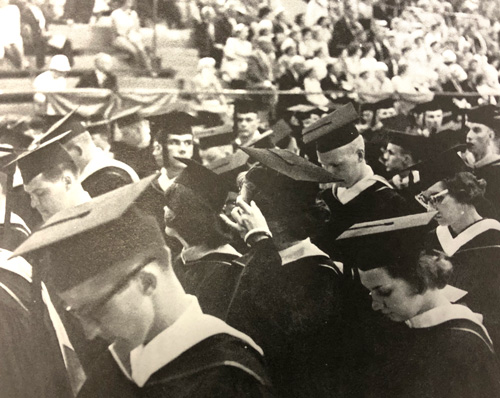 I practiced nursing for four or five years and made the switch to teaching because the timing worked for me. I had young children and I could be home when they were home and teaching when they were in school — it worked out really well.
I practiced nursing for four or five years and made the switch to teaching because the timing worked for me. I had young children and I could be home when they were home and teaching when they were in school — it worked out really well.
There wasn’t anything I wish I learned at UD that I didn’t.
I think it’s important to enjoy your time at UD and the friends that you make, and if it’s possible to take a literature or music course or something that is pretty far from your science degree, do it.
My degree from UD was valuable in many ways. It broadened my scope of interest and allowed me to see myself getting involved with many different things, such as teaching.
Col. Allan Perry ’63, San Antonio, Texas
My experiences were very unique, much different than any other undergraduate student at that time. I was in the military working full time at the Wright-Patterson Hospital.
UD gave me the basics for higher education, which gave me higher levels of responsibility in the Air Force. And from that, I was able to progress in the military up to the rank of colonel. And later I ended up as the chairman of nursing education and training at one of the largest Air Force hospitals.
When I retired from the military, I became executive director of Air Force Village, which is a retirement village for Air Force military officers. And that also taught me the importance of getting involved in community. I was an adviser for the University of Texas when they opened in San Antonio, and I also was chairman of the Nursing Advisory Board at University of the Incarnate Word later in life.
Edwina Nesbitt Newell ’66, Dayton
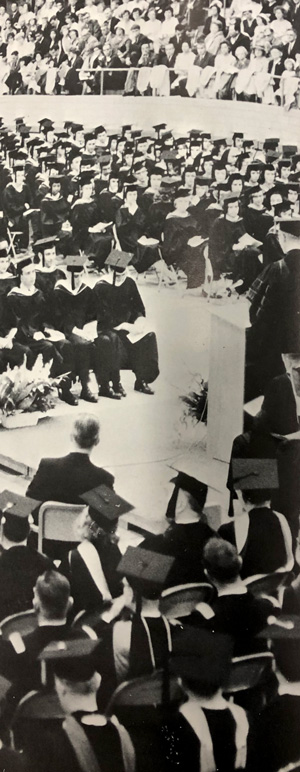 I started the program in September and went all through the winter and summer and then graduated in August. So, it was about two and a half years. The nursing classes were small. I would say, maybe eight students.
I started the program in September and went all through the winter and summer and then graduated in August. So, it was about two and a half years. The nursing classes were small. I would say, maybe eight students.
During the program I lived with my husband, up north of Fairborn. I commuted every day. I had friends who lived just off campus in some of the houses down on Stewart Street. Some of the big old houses that had a front porch and everything.
My husband was in his senior year at Muskingum University in Zanesville. So I worked the school year in Zanesville at Good Samaritan Hospital. But then our family started growing, and my first baby was born before [my] graduation.
Volunteering is what I did after UD. I volunteered with La Leche League, teaching young mothers how to breastfeed their babies, until I became a grandmother.
Mary Brockmeyer Scott ’55, Chillicothe, Ohio
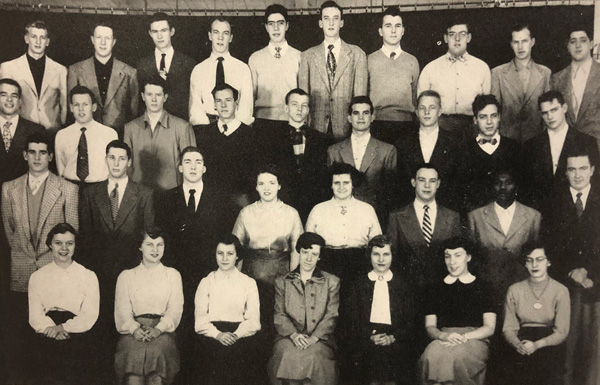
We were a very small class, we graduated with seven. We lived in St. Elizabeth Nursing Home and walked across the river to come to UD every day.
We did have a driver who picked us up from UD to take us home, because we had to get to work at the hospital and we didn’t have much time to get there.
We’d go to the basketball games, certainly, we tried to go to all the University events we could. But it was a tight program, we didn’t have a whole lot of free time.
It was hard. I can still remember that. And of course, any student knows, going to school is hard sometimes. And I felt like, and still do feel like, I received a wonderful education from UD.
I have great respect for all the teachers and programs at UD. I think the new nursing students will do wonderfully well.
